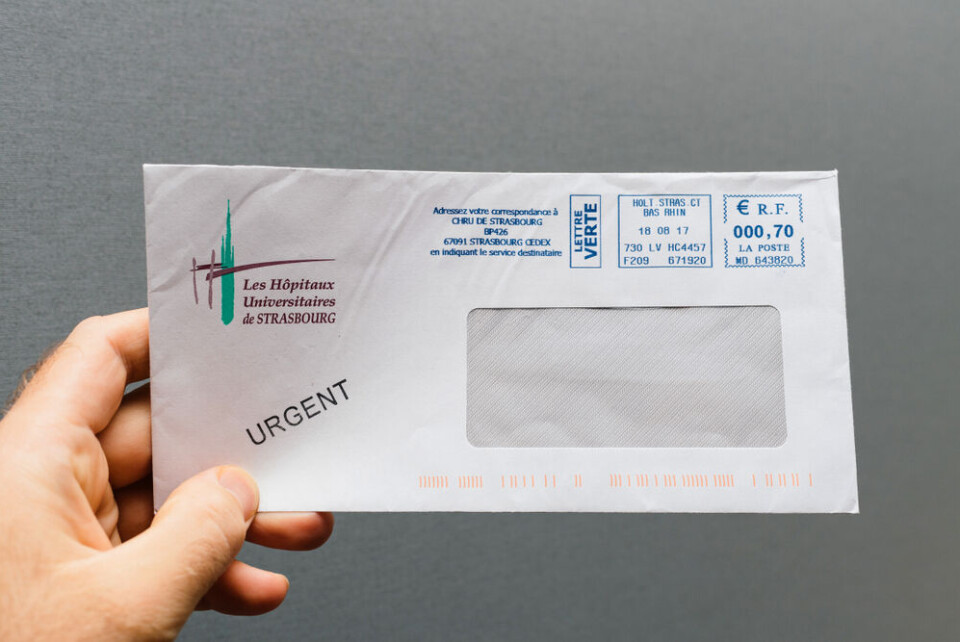-
Price drops for French mobile contracts - which offer cheapest deals now?
The average price for a package has fallen by 10% in the past year
-
How much are gas prices in France rising in April - and why?
It comes after six consecutive monthly rises. Try these tips to reduce your bills
-
How long are waits at French emergency units - new statistics released
We also look at how wait times compare with the UK and the US
How do hospital fees work in France?
We look at what is covered by the state and what is left for the patient or healthcare top-up insurance to pay

The price of care from public hospitals is heavily regulated in France as part of a hybrid public/private system that offers comprehensive coverage to most people for little expense.
The system is designed to ensure that healthcare is accessible even for people without the means to pay.
In particular, urgent care is available even for people who are not in the Assurance maladie system, irrespective of whether the hospital is public or private.
However, the sprawling French hospital system is far from simple to navigate, and varies depending on your insurance coverage (or lack of), your department, and your healthcare needs.
Read also: Medicines in France will cost patients more from spring
Read also: How does your local French hospital fare in official quality rankings?
How fees work
Fees do not have to be paid until you leave the hospital and all now use the tiers payant system, which means that if you have a top-up insurance provider, it will pay the hospital directly.
In public hospitals or cliniques privées conventionnées (private clinics that have signed an agreement with the state) fees include several elements:
Forfait hospitalier - a daily €20 charge towards accommodation, meals and laundry etc..
This is not reimbursed by the state but most mutuelles (optional top-up healthcare insurance) cover it.
Frais d’hospitalisation – a bill for services of the hospital’s medical staff and costs of medicine and equipment. The state reimburses 80% of this total.
The rate varies depending on the hospital and department and can mount up to as much as €3,000 a day in intensive care.
Certain procedures, usually those with a tariffs of at least €120, are considered to be actes lourds, and as such are fully reimbursed by the state - minus a fixed payment of €24.
Similarly, certain long-term conditions, known as affectations longue durée (ALD) are fully reimbursed by the state. A list of these conditions is available here.
After 30 days in hospital the frais d’hospitalisation is paid for in full by the state.
Comfort options - these include supplements on top of the frais d’hospitalisation bill and covers things like having a private room with a TV or a telephone.
A private room typically costs around €60 in a public hospital, or €100 in a private clinic, however, these can vary considerably.
Note that if your health condition necessitates a private room, as opposed to a shared one, you will not be billed extra for it - unless you decide to pay for extra options.
Read more: Do you need to take your own towels for a hospital stay in France?
Dépassements d’honoraires - some practitioners charge excess fees above the standard rates for treatment. However, this is rare in hospitals.
You will be informed if a medical act requires excess fees. Be aware that not all top-ups pay them entirely.
An example of French hospital fees
For a three day stay in hospital:
- Forfait hospitalier: €20 ✕ 3 = €60
- Frais d’hospitalisation: €257 ✕ 3 = €831
- 80% or €664.80 of this is covered by the state leaving €166.20
- Individual room: €43.62 ✕ 3 = €130.86
- Total: €357.06
This is to be paid by the patient or the top-up insurance provider.
Who gets completely free hospital treatment?
- Pregnant women during the last four months of pregnancy, when giving birth or in the 12 days after giving birth.
- Infants younger than 30 days
- People with modest revenues who have the complémentaire santé solidaire and an eligible mutuelle
- People with the aide médicale d’État (AME)
- People hospitalised after an accident at work or due to a work-related illness
- People in hospital care at home
- Disabled children under the age of 20 who are in specialised state or professional care establishments
- People on the Alsace-Moselle insurance system
- People with military pensions
- Victims of terrorism
What if you do not have health insurance?
First, note that you will not be denied treatment.
If you do not have insurance and do not have the means to pay having received medical treatment, you might qualify aide médicale de l'État (AME) or the Complémentaire santé solidaire (CSS).
Read more: Claiming free or cheaper top-up French health insurance to get easier
Read more: Explainer: the CSS, France’s free or low cost top-up health insurance
Typically, the AME requires people to request this nine months before seeking medical treatment. However, if care is required urgently, a doctor can request that a patient be exempted from this nine month delay.
Applications for the CSS, intended for people with modest revenues, are typically processed in two months, however it gives immediate cover as a top-up when granted.
Some top-up insurers also offer immediate coverage, even for ongoing hospital treatment.
For more information on French healthcare and hospitals consult our guide to Healthcare in France.
Read more
How does hospital and other medical transport work in France?
More French mayors negotiate top-up health cover for residents
7 points to consider when choosing top-up health insurance in France
























